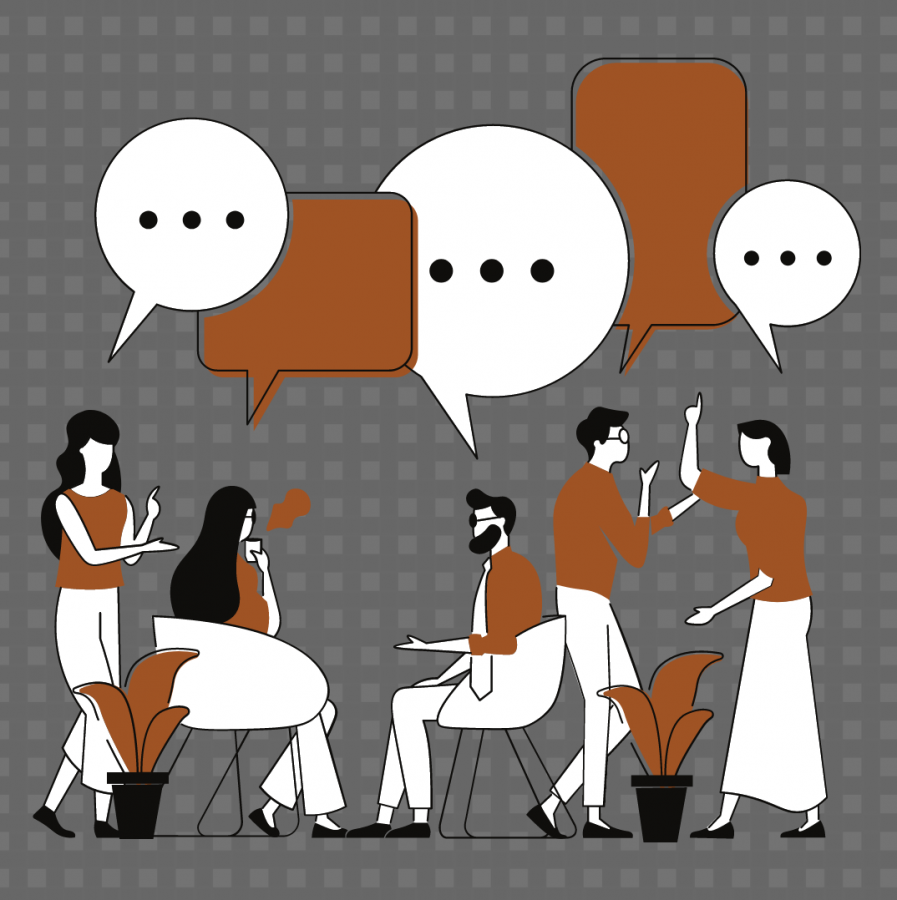Progress cannot be made through silence; it requires conversations. But, what if those conversations are invalidating and do not promote growth?
For many minority students, holding a conversation about racism with a White classmate can be a greatly invalidating experience. What can be done to turn these difficult conversations into conversations that incite change?
Often, having a discussion with a white peer can be difficult for a POC student. Listening to white people decide what is or is not racist to do or say is frustrating. In many cases, POC students do not want to start up arguments with their close friends, but they also feel the responsibility to speak up and educate their friends.
Truly, the responsibility lies on both parties. It is important for people on both ends of this issue to take action in order to create a place for progress oriented discussion.
Junior Allisa Pandit often feels invalidated when discussing race issues with peers. “It is incredibly invalidating when my white peers spark racial conversations with a closed mind. Personally, I’ve had white friends ask me about my opinions on issues or my experiences as a student of color. Oftentimes, they keep an open mind and are able to learn more about why certain issues are offensive,” she explained.
“What feels invalidating is when they respond with the ‘stop being sensitive’ or ‘not everything is about race.’ As a white person, it is so easy to claim that everything isn’t about race. The bottom line is if someone is truly interested in learning something new, they will keep an open mind in conversations,” she continued.
Sometimes, it is difficult to explain experiences that are unique to a specific group of people to another group. For a white student, it can be extremely difficult to understand what racism is like, along with anything that comes along with it: microaggressions, self esteem issues, etc. Similarly, for a POC student, it can be extremely difficult to try and explain their experiences and feel heard.
In situations like this, it is crucial that White students are listening. While they might not be able to completely sympathize or understand, the best thing they can do is listen to their fellow POC classmates. Understanding can go a long way.
However, only listening is not going to incite change; conversations are. When speaking about something like race, it is important to watch one’s language. Using the correct and appropriate terms while talking to POC and about race is vital for an effective conversation.
There are basic terms that almost everyone knows is unacceptable to say. However, other terms seem to fly under the radar.
A widely known word that is unacceptable is the n-word. However, a lesser known term is “colored people.” Even today many people use the term “colored people” to describe people of color.
Another word that is highly discussed is the word “Negroe.” While it might not be the n-word that everyone thinks of, it still holds a lot of historical significance. Often in education situations teachers find it acceptable to say the word once or twice if it appears in a text, however, many students still find the use of this word uncomfortable.
But, whose job is it to make this problem more aware? POC? White people? For an effective change to occur, both POC and White people need to make an effort to either inform or be informed.
Junior Hannah Harrison believes that it is crucial for white people to do their part in inciting progressive conversations. “Of course it is important that both parties are doing their part, however, the responsibility cannot always lie on POC to educate others. White people need to take the initiative to educate themselves and make the appropriate decisions to help POC,” Harrison stated.
Many times, ignorance is the root of these issues. People will not realize the cultural significance of specific words or phrases, presenting them as people with bad intentions.
Due to this ignorance, sometimes the responsibility falls on the POC to indicate any offensive terminology or actions. However, then the responsibility falls on the White individual to take the time to inform themselves on their wrong doings and how to do better.









